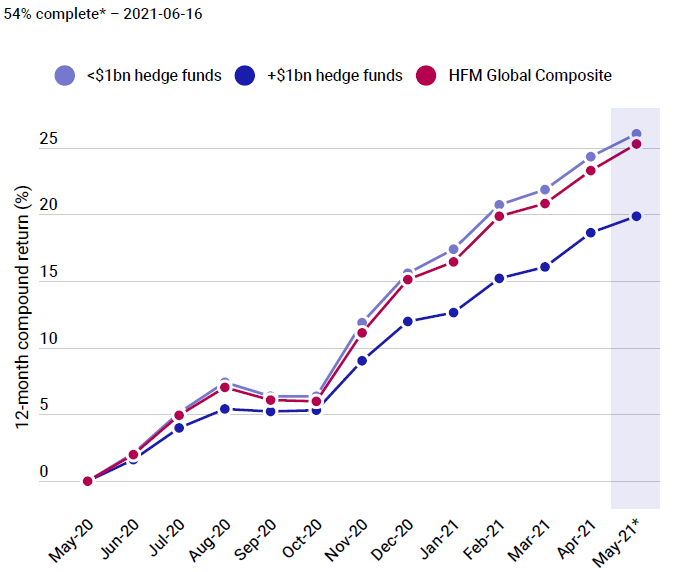Hidden Value Stocks problem for the 4th quarter ended December 31, 2021, including an interview with Lowell Capital Worth Partners Jim Zimmerman and Abigail Zimmerman
Q4 2021 hedge fund letters database is now up. See what stocks top hedge funds are offering, what they are buying, what positions they are working with for, what their financial investment process is, their returns and much more! This page is upgraded frequently, VERY FREQUENTLY, day-to-day or sometimes numerous times a day.
Lowell Capital Value Partners, LP
Background
Prior to forming LCF in early 2003, Mr. Zimmerman was a Managing Director at two shop investment banks as well as a First Vice President in Corporate Finance at Paine Webber. Mr. Zimmerman holds a B.A. from Princeton University with high honors and an M.B.A. from Stanford Business School.
His child, Abigail Zimmerman, works together with him at Lowell Capital. She made her B.A. in Business Administration at Loyola Marymount University in Los Angeles and has worked with Jim for the last a number of years. She helps in the generation of brand-new concepts, administrative duties, research study of little and medium cap business, and detailed due diligence on possible investments.
To start, could you inform us about Lowell Capitals background?
I had a background in investment banking for many years and kept in mind the better companies were the ones that produced money and didnt truly require funding. Our main focus is conservative and constant growth and compounding of capital over time with a heavy focus on business with strong free cash circulation qualities and “Ft. Knox” type balance sheets.
We are long-time members of a number of financial investment websites where we have posted over 50 financial investment writeups with steady and extremely strong performance outcomes. We take an extremely transparent method to investing.
Lowell has specified its approach as “investing in excellent companies with low expectations.” What do you suggest when you state youre looking for companies with “low expectations?”
When we discuss good organizations, we are normally discussing services with high returns on invested capital. When we speak about low expectations, we are speaking about low P/E multiples, low enterprise worth to EBITDA multiples, low complimentary money flow multiples. We dont want to pay high multiples generally.
With a concentrate on small-cap value, why do you believe there are more opportunities in this area of the marketplace?
There is less research study coverage and investment banking focus on these smaller companies. Many of the companies we invest in have literally no research protection or possibly one or 2 research experts at the majority of. Even more, the quality of the research is often less comprehensive than for larger companies.
Do you believe the growing size of the passive investing sector is having a noteworthy influence on the number of undervalued little caps?
Yes. There is less research study coverage of micro-cap and small companies nowadays. Our company believe there are close to 8,000+ public companies in North America alone and a big bulk have extremely little bit, if any, research protection. This gives us an excellent chance to find under-valued little and micro-cap business with strong complimentary capital and “Ft. Knox” balance sheets and shareholderoriented management teams. We look at thousands of companies to discover a handful that fit our investing approach of strong free cash circulations and “Ft. Knox” balance sheets.
Often business are cheap because they should have to be. How do you screen for worth traps in your ideas?
We believe our strong focus on complimentary money circulation helps avoid us from worth traps. If a business can sustainably generate and grow free cash circulation with time, we find this generally ultimately drives shareholder worth.
Do you tend to focus on a choose couple of concepts or handle a well-diversified portfolio?
We tend to focus our financial investments on 5% to 7% of capital at cost and hold a diverse portfolio of 15 to 25 financial investments on the long side. These financial investments all show our concentrate on complimentary money flow and “Ft. Knox” balance sheets. When a private investment works and good disadvantage if we make a mistake, this offers us strong upside.
Small-cap stocks can struggle to attract the attention of financiers. Are you searching for any catalysts when you invest which may help drive a re-rating of the equity?
Big share redeemed programs, unique dividends, Dutch tenders, rapid financial obligation paydown or net money build up can all assist as drivers. Numerous of our business have been gotten by financial or strategic financiers who are brought in to their strong and sustainable money circulations.
Lowell has traditionally held 30% of possessions in cash. What is the principle behind this– is it part of a risk management strategy?
We will adjust our cash position to show the opportunity set we find for particular financial investments and the general outlook for the economy. We have actually most just recently been managing the fund with closer to 20% in money based on the chances we are finding.
The fund is looking for “sincere and smart management teams that are extremely concentrated on driving investor worth.” What are the main qualities the company is searching for when examining managers?
We focus on supervisors that understand return on invested capital and are driving development through high return financial investments or acquisitions or repurchases of stock at extremely accretive rates. We focus on management teams that completely comprehend their organization niche in information and how to produce competitive advantage and “moats” for their service.
Youre likewise looking for “distinct specific niches or business models” Can you provide an example of a previous or existing financial investment, its special business design, and the qualities that at first attracted you to the stock?
Just recently, in 2020, we invested in a Canadian company, PFB Corp. (PFB. We liked the strong cash circulations and the conservative balance sheet and the conservative management group. PFB was just recently gotten by a private equity company at a large premium to our financial investment cost.
Carrying on to evaluation, can you talk briefly about how Lowell approaches evaluation Are you prepared to pay more for a business with a better management/more considerable competitive advantage?
Our focus is heavily on totally free money circulation and sustainable free money circulation generation. We compare this to the current 10-year treasury yield of under 2% and we discover that highly attractive assuming our free money circulation yield is sustainable and can grow.
It would likewise be interesting to understand if theres has been a financial investment that initially ticked all packages but did not eventually work out: We purchased Barnes & & Noble (NYSE: BKS) which had terrific money streams even through the financial crisis in 2008-9. We thought it was trading at an appealing multiple of enterprise value to EBITDA and capital.
What initially attracted you to business?
We liked BKS capital and its resiliency through 2008-9. It was valued at an extremely modest multiple of capital, like 3- or 4-times capital.
It helped further focus on investment strategy to “Skate to Where the Puck is Going to Be, Not Where it is Today” which is the popular Wayne Gretzky quote. Strong cash flows alone are simply not adequate. Many of our greatest investment gains come from long-lasting multi-year development in the underlying service models.
Finally, Lowell uses shorts selectively to hedge the portfolio. Can you offer some insight into the qualities youre looking for simply put positions?
They tend to have severe assessments that we think are unsustainable and weak balance sheets and big negative money flows and deceitful or marketing management groups. That said, we do keep our brief positions little, as anything can happen to stock costs in the short term and our small sizes helps manage through that.
Our primary focus is consistent and conservative growth and compounding of capital over time with a heavy focus on business with strong totally free cash circulation characteristics and “Ft. Knox” type balance sheets. We look at thousands of companies to discover a handful that fit our investing method of strong free cash flows and “Ft. Knox” balance sheets.
These financial investments all reflect our focus on totally free money flow and “Ft. Knox” balance sheets. Several of our business have been obtained by strategic or financial financiers who are attracted to their strong and sustainable cash circulations.
Our focus is heavily on complimentary money flow and sustainable free cash flow generation.




